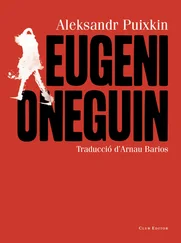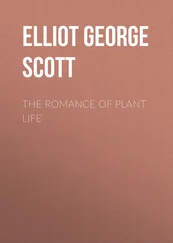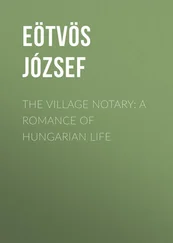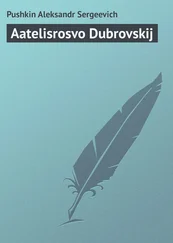Aleksandr Pushkin - Eugene Oneguine [Onegin]. A Romance of Russian Life in Verse
Здесь есть возможность читать онлайн «Aleksandr Pushkin - Eugene Oneguine [Onegin]. A Romance of Russian Life in Verse» весь текст электронной книги совершенно бесплатно (целиком полную версию без сокращений). В некоторых случаях можно слушать аудио, скачать через торрент в формате fb2 и присутствует краткое содержание. Год выпуска: 2007, Жанр: Поэзия, на английском языке. Описание произведения, (предисловие) а так же отзывы посетителей доступны на портале библиотеки ЛибКат.
- Название:Eugene Oneguine [Onegin]. A Romance of Russian Life in Verse
- Автор:
- Жанр:
- Год:2007
- ISBN:нет данных
- Рейтинг книги:4 / 5. Голосов: 1
-
Избранное:Добавить в избранное
- Отзывы:
-
Ваша оценка:
- 80
- 1
- 2
- 3
- 4
- 5
Eugene Oneguine [Onegin]. A Romance of Russian Life in Verse: краткое содержание, описание и аннотация
Предлагаем к чтению аннотацию, описание, краткое содержание или предисловие (зависит от того, что написал сам автор книги «Eugene Oneguine [Onegin]. A Romance of Russian Life in Verse»). Если вы не нашли необходимую информацию о книге — напишите в комментариях, мы постараемся отыскать её.
Eugene Oneguine [Onegin]. A Romance of Russian Life in Verse — читать онлайн бесплатно полную книгу (весь текст) целиком
Ниже представлен текст книги, разбитый по страницам. Система сохранения места последней прочитанной страницы, позволяет с удобством читать онлайн бесплатно книгу «Eugene Oneguine [Onegin]. A Romance of Russian Life in Verse», без необходимости каждый раз заново искать на чём Вы остановились. Поставьте закладку, и сможете в любой момент перейти на страницу, на которой закончили чтение.
Интервал:
Закладка:
15
Note 14: Elvine , or Elvina , was not improbably the owner of the seductive feet apostrophized by the poet, since, in 1816, he wrote an ode, "To Her," which commences thus:
"Elvina, my dear, come, give me thine hand," and so forth.
16
i.e. the milkmaid from the Okhta villages, a suburb of St. Petersburg on the right bank of the Neva chiefly inhabited by the labouring classes.
17
Apropos of this somewhat ungallant sentiment, a Russian scholiast remarks:—"The whole of this ironical stanza is but a refined eulogy of the excellent qualities of our countrywomen. Thus Boileau, in the guise of invective, eulogizes Louis XIV. Russian ladies unite in their persons great acquirements, combined with amiability and strict morality; also a species of Oriental charm which so much captivated Madame de Stael." It will occur to most that the apologist of the Russian fair "doth protest too much." The poet in all probability wrote the offending stanza in a fit of Byronic "spleen," as he would most likely himself have called it. Indeed, since Byron, poets of his school seem to assume this virtue if they have it not, and we take their utterances under its influence for what they are worth.
18
The midsummer nights in the latitude of St. Petersburg are a prolonged twilight.
19
Refers to Mouravieff's "Goddess of the Neva." At St. Petersburg the banks of the Neva are lined throughout with splendid granite quays.
20
A street running parallel to the Neva, and leading from the Winter Palace to the Summer Palace and Garden.
21
The strong influence exercised by Byron's genius on the imagination of Pushkin is well known. Shakespeare and other English dramatists had also their share in influencing his mind, which, at all events in its earlier developments, was of an essentially imitative type. As an example of his Shakespearian tastes, see his poem of "Angelo," founded upon "Measure for Measure."
22
The poet was, on his mother's side, of African extraction, a circumstance which perhaps accounts for the southern fervour of his imagination. His great-grandfather, Abraham Petrovitch Hannibal, was seized on the coast of Africa when eight years of age by a corsair, and carried a slave to Constantinople. The Russian Ambassador bought and presented him to Peter the Great who caused him to be baptized at Vilnius. Subsequently one of Hannibal's brothers made his way to Constantinople and thence to St. Petersburg for the purpose of ransoming him; but Peter would not surrender his godson who died at the age of ninety-two, having attained the rank of general in the Russian service.
23
Refers to two of the most interesting productions of the poet. The former line indicates the Prisoner of the Caucasus , the latter, The Fountain of Baktchiserai . The Salguir is a river of the Crimea.
24
The barshtchina was the corvee, or forced labour of three days per week rendered previous to the emancipation of 1861 by the serfs to their lord.
The obrok was a species of poll-tax paid by a serf, either in lieu of the forced labour or in consideration of being permitted to exercise a trade or profession elsewhere. Very heavy obroks have at times been levied on serfs possessed of skill or accomplishments, or who had amassed wealth; and circumstances may be easily imagined which, under such a system, might lead to great abuses.
25
The neighbours complained of Oneguine's want of courtesy. He always replied "da" or "nyet," yes or no, instead of "das" or "nyets"—the final s being a contraction of "sudar" or "sudarinia," i.e. sir or madam.
26
Note 25: From the lay of the Russalka , i.e. mermaid of the Dnieper.
27
"The most euphonious Greek names, e.g. Agathon, Philotas, Theodora, Thekla, etc., are used amongst us by the lower classes only."
28
The serfs destined for military service used to have a portion of their heads shaved as a distinctive mark.
29
The foregoing stanza requires explanation. Russian pancakes or "blinni" are consumed vigorously by the lower orders during the Carnival. At other times it is difficult to procure them, at any rate in the large towns.
The Russian peasants are childishly fond of whirligigs, which are also much in vogue during the Carnival.
"Christmas Carols" is not an exact equivalent for the Russian phrase. "Podbliudni pessni," are literally "dish songs," or songs used with dishes (of water) during the "sviatki" or Holy Nights, which extend from Christmas to Twelfth Night, for purposes of divination. Reference will again be made to this superstitious practice, which is not confined to Russia. See Note 52.
"Song and dance," the well-known "khorovod," in which the dance proceeds to vocal music.
"Lovage," the Levisticum officinalis , is a hardy plant growing very far north, though an inhabitant of our own kitchen gardens. The passage containing the reference to the three tears and Trinity Sunday was at first deemed irreligious by the Russian censors, and consequently expunged.
Kvass is of various sorts: there is the common kvass of fermented rye used by the peasantry, and the more expensive kvass of the restaurants, iced and flavoured with various fruits.
The final two lines refer to the "Tchin," or Russian social hierarchy. There are fourteen grades in the Tchin assigning relative rank and precedence to the members of the various departments of the State, civil, military, naval, court, scientific and educational. The military and naval grades from the 14th up to the 7th confer personal nobility only, whilst above the 7th hereditary rank is acquired. In the remaining departments, civil or otherwise, personal nobility is only attained with the 9th grade, hereditary with the 4th.
30
A play upon the word "venetz," crown, which also signifies a nimbus or glory, and is the symbol of marriage from the fact of two gilt crowns being held over the heads of the bride and bridegroom during the ceremony. The literal meaning of the passage is therefore: his earthly marriage was dissolved and a heavenly one was contracted.
31
The fortress of Otchakoff was taken by storm on the 18th December 1788 by a Russian army under Prince Potemkin. Thirty thousand Turks are said to have perished during the assault and ensuing massacre.
32
"Svetlana," a short poem by Joukovski, upon which his fame mainly rests. Joukovski was an unblushing plagiarist. Many eminent English poets have been laid under contribution by him, often without going through the form of acknowledging the source of inspiration. Even the poem in question cannot be pronounced entirely original, though its intrinsic beauty is unquestionable. It undoubtedly owes its origin to Burger's poem "Leonora," which has found so many English translators. Not content with a single development of Burger's ghastly production the Russian poet has directly paraphrased "Leonora" under its own title, and also written a poem "Liudmila" in imitation of it. The principal outlines of these three poems are as follows: A maiden loses her lover in the wars; she murmurs at Providence and is vainly reproved for such blasphemy by her mother. Providence at length loses patience and sends her lover's spirit, to all appearances as if in the flesh, who induces the unfortunate maiden to elope. Instead of riding to a church or bridal chamber the unpleasant bridegroom resorts to the graveyard and repairs to his own grave, from which he has recently issued to execute his errand. It is a repulsive subject. "Svetlana," however, is more agreeable than its prototype "Leonora," inasmuch as the whole catastrophe turns out a dream brought on by "sorcery," during the "sviatki" or Holy Nights (see Canto V. st. x), and the dreamer awakes to hear the tinkling of her lover's sledge approaching. "Svetlana" has been translated by Sir John Bowring.
Читать дальшеИнтервал:
Закладка:
Похожие книги на «Eugene Oneguine [Onegin]. A Romance of Russian Life in Verse»
Представляем Вашему вниманию похожие книги на «Eugene Oneguine [Onegin]. A Romance of Russian Life in Verse» списком для выбора. Мы отобрали схожую по названию и смыслу литературу в надежде предоставить читателям больше вариантов отыскать новые, интересные, ещё непрочитанные произведения.
Обсуждение, отзывы о книге «Eugene Oneguine [Onegin]. A Romance of Russian Life in Verse» и просто собственные мнения читателей. Оставьте ваши комментарии, напишите, что Вы думаете о произведении, его смысле или главных героях. Укажите что конкретно понравилось, а что нет, и почему Вы так считаете.











